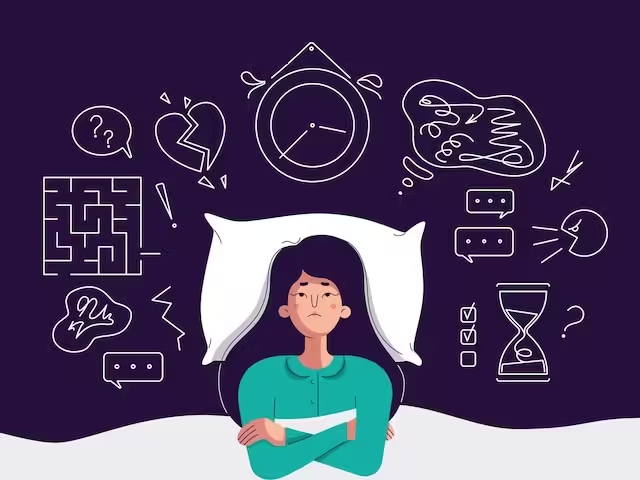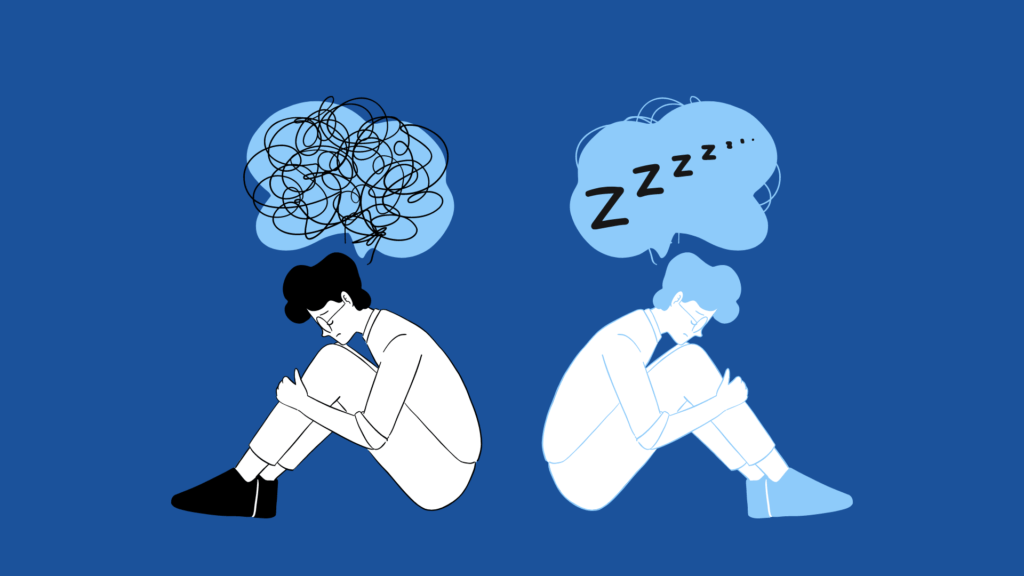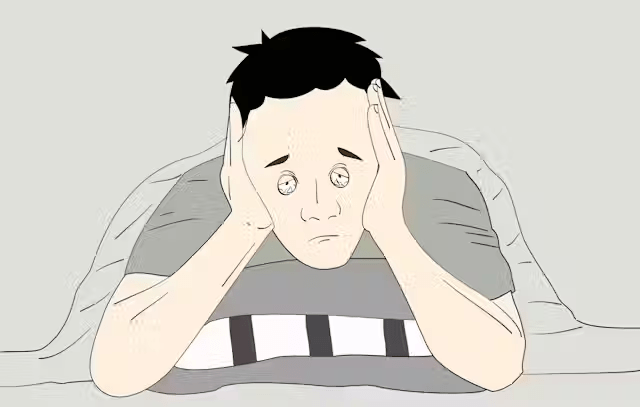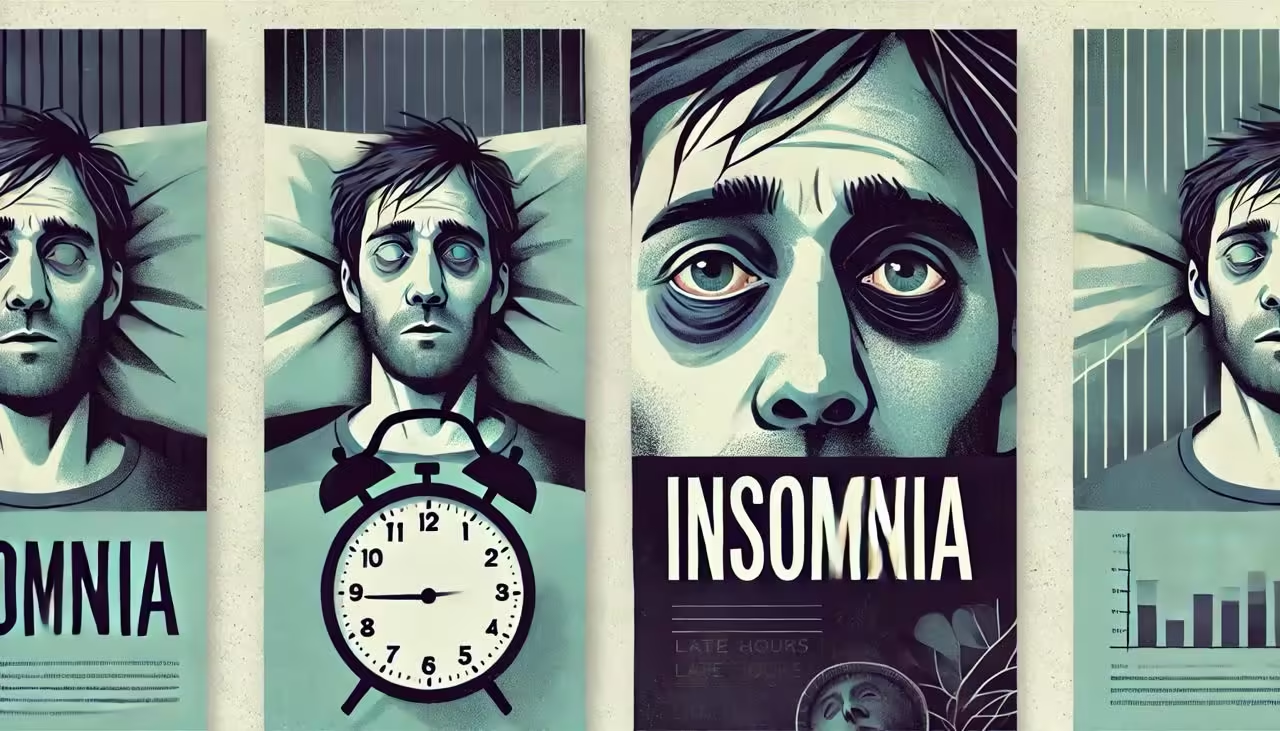Definition of Insomnia
The term “Insomnia” is used in various ways in medical literature and popular press. Insomnia is considered both a symptom and a sign. However, in this article, the term insomnia will be used as a disorder with the following diagnostic criteria:
(1) Difficulty initiating sleep, maintaining sleep, or experiencing non-restorative sleep;
(2) This difficulty occurs despite adequate opportunity and conditions for sleep;
(3) This sleep impairment is associated with daytime impairment or distress;
(4) This difficulty sleeping occurs at least thrice a week and has persisted for at least one month.
Nguyên nhân
Insomnia is a disorder caused by various factors, with psychological and psychiatric factors accounting for 50% of cases. Medical conditions and the use of treatment medications make up 25% of cases. Additionally, primary (idiopathic) insomnia accounts for 15% of cases. Furthermore, other causes, such as poor sleep hygiene, contribute to 10% of cases.

It has been found that risk factors for insomnia include depression, anxiety disorders, and changes in sleep-wake schedules. Additionally, women, the elderly, and individuals with chronic illnesses are also at higher risk of experiencing sleeplessness.
Symptoms of Insomnia
Patients with sleep deprivation often experience the following sleep-related symptoms:
- Difficulty falling asleep: taking a long time to get to sleep
- Difficulty maintaining sleep: quickly waking up during the night
- Waking up earlier than desired
- Difficulty adhering to a regular sleep schedule

Furthermore, patients may also experience daytime symptoms related to sleep issues, such as:
- Fatigue and irritability
- Reduced attention and concentration
- Impaired ability to work, study, and perform daily activities
- Mood disturbances, irritability
- Daytime sleepiness
- Behavioral issues: hyperactivity, impulsiveness, aggression
- Decreased energy, reduced ability to think and create
- Increased likelihood of errors and mistakes
Chẩn đoán
According to the International Classification of Sleep Disorders, 3rd Edition – ICSD 3, insomnia is a clinical diagnosis.
In addition, to support diagnosis and treatment, the doctor may prescribe the following paraclinical tests:
- Polysomnogram: measures physiological parameters such as electroencephalogram (EEG), electrooculogram (EOG), electromyography (EMG), and finally, electrocardiogram (ECG).
- Blood test: The doctor prescribes a blood test to rule out diseases that cause insomnia, such as thyroid disease, diabetes, and anemia.
- Brain magnetic resonance imaging (MRI): MRI helps to comprehensively examine the brain’s structure to assess the status of blood vessels, tumors, and ventricles.
Điều trị
Untreated insomnia can lead to several serious consequences, such as impaired concentration and poor memory. Moreover, it negatively impacts family and social relationships. Additionally, it can result in a reduced quality of life and an increased risk of cardiovascular, metabolic, and cancer-related diseases. Furthermore, insomnia also raises the likelihood of anxiety disorders and depression. Therefore, treating insomnia is essential to improving the patient’s health and quality of life.

Managing insomnia depends on the underlying causes and various classification groups. The treatment of insomnia involves a multidisciplinary team of specialists and a combination of non-pharmacological and pharmacological approaches. Treatment aims to bring the patient as close as possible to a natural physiological sleep pattern.
Non-pharmacological treatments include:
- Cognitive-behavioral therapy (CBT), recommended for most patients, includes stimulus control therapy, sleep restriction therapy, relaxation therapy, cognitive therapy, and sleep hygiene practices.
- Based on traditional medicine classifications, acupuncture helps patients quickly restore physiological sleep patterns.
- Acupressure massage not only relaxes the head area but also provides comfort, helping patients quickly fall asleep.
- Other physical therapy methods, such as music therapy, aromatherapy, and warm compresses, regulate the patient’s sleep.
Pharmacological treatments:
It is necessary to consult a psychiatric specialist to ensure the most appropriate and safest use of medications. Commonly used drug groups include:
- Anxiolytics and sedatives (Diazepam, Zolpidem)
- Antidepressants (Amitriptyline, Mirtazapine)
- Antipsychotics (Olanzapine, Quetiapine)
- Mood stabilizers (Carbamazepine, Gabapentin)
Phòng ngừa
We can effectively prevent insomnia by practicing good sleep hygiene and cognitive-behavioral therapy.
- First, maintain a regular sleep-wake schedule and avoid spending excessive time in bed.
- Next, avoid sleeping in the morning and limit afternoon naps to less than an hour.
- Moreover, maintain a balanced daily routine that includes study, work, meals, relaxation, rest, and sleep.
- Additionally, refrain from eating or drinking in bed and limit the consumption of stimulants like coffee, tea, alcohol, and tobacco.

